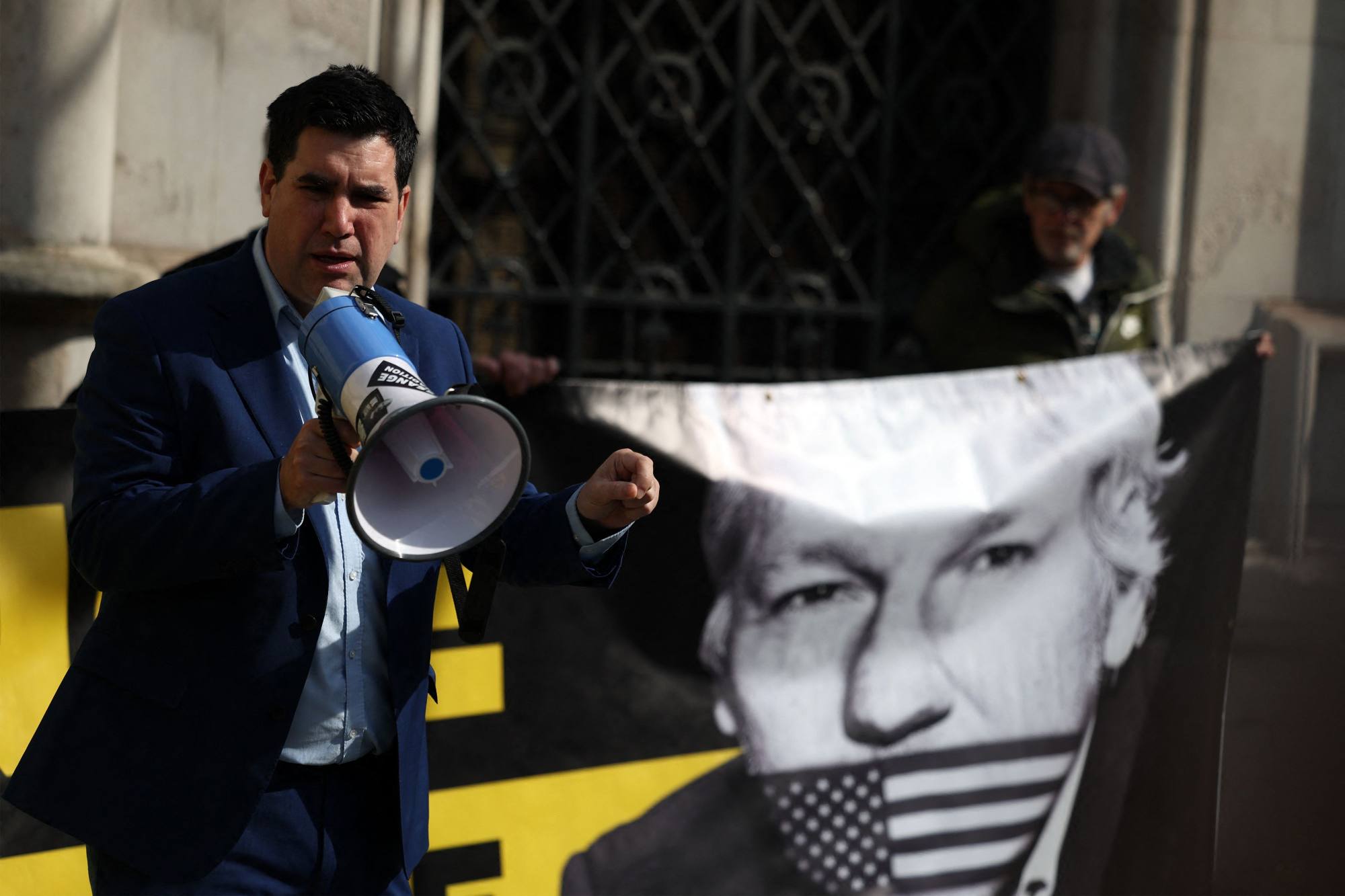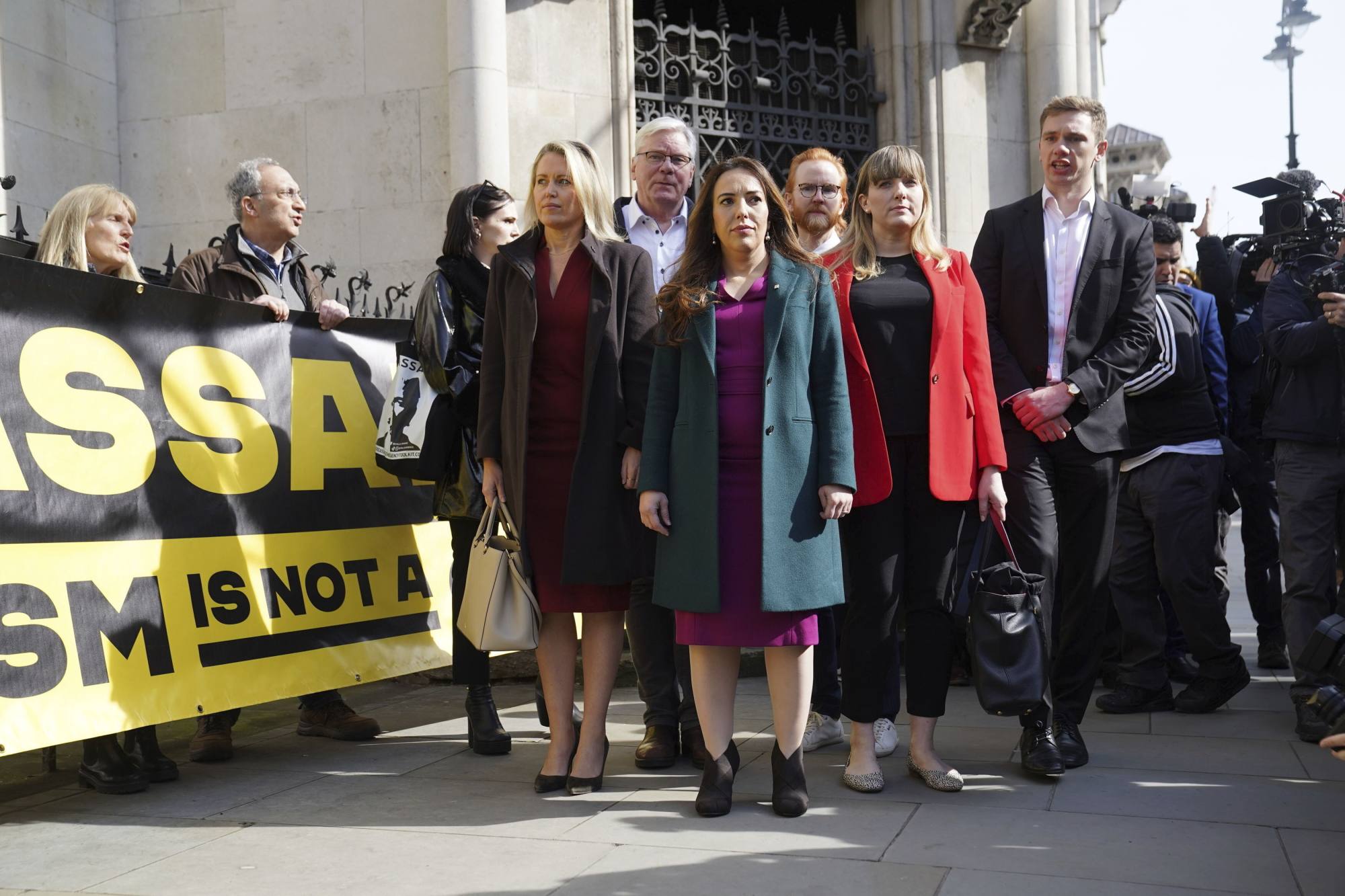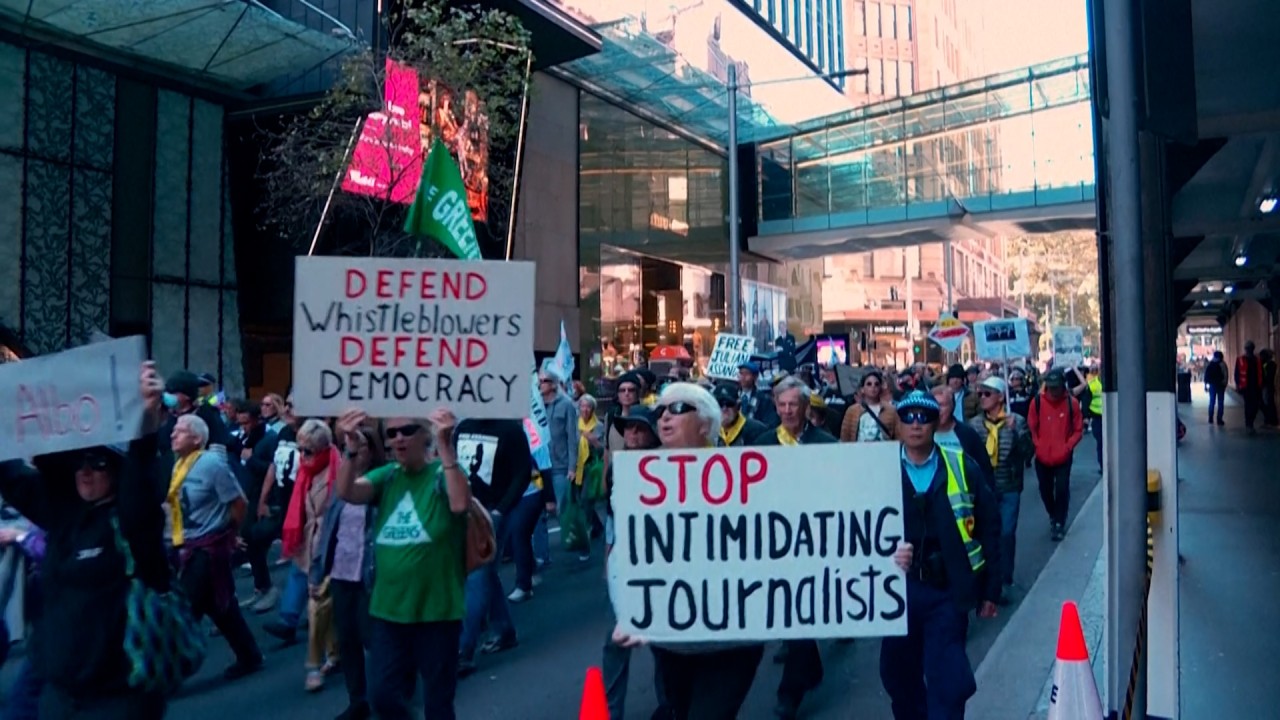But following two days of evidence last month, the judges in London said Assange had “a real prospect of success” on three of his nine grounds of appeal.

Victoria Sharp and Jeremy Johnson gave Washington three weeks to provide fresh assurances over concerns he will be prejudiced at trial because he is not an American citizen and that he could face the death penalty if convicted.
“Before making a final decision on the application for leave to appeal, we will give the respondent an opportunity to give assurances,” the pair wrote in their 66-page ruling.
“If assurances are not given then we will grant leave to appeal without a further hearing.
“If assurances are given then we will give the parties an opportunity to make further submissions before we make a final decision.”
Assange ‘will die’ if extradited to US, confidant of WikiLeaks founder says
Assange ‘will die’ if extradited to US, confidant of WikiLeaks founder says
Assange, who has been held at a high-security London prison on remand since 2019, was not in court for the latest ruling, which was released online and not in a hearing.
He was absent from court on both days in February and did not follow the proceedings via video due to illness, his lawyer said at the time.
If he eventually loses the appeal bid, the WikiLeaks’ founder will have exhausted all UK appeals and will be set to enter the extradition process.
However, his team has previously indicated they will ask the European courts to intervene and that they would be given 14 days to do so.

Major media organisations, press freedom advocates and the Australian parliament have all denounced the prosecution under the 1917 Espionage Act, which has never been used over the publishing of classified information.
Washington alleges that Assange and others at WikiLeaks recruited and agreed with hackers to conduct “one of the largest compromises of classified information” in US history.
During last month’s hearing, lawyers for the US government defended the case on various legal grounds.
Lawyers for Assange submitted that the charges were “political” and that he was being prosecuted “for engaging in ordinary journalistic practice of obtaining and publishing classified information”.
Before going to prison, Assange spent seven years holed up in Ecuador’s London embassy to avoid extradition to Sweden, where he faced accusations of sexual assault which were later dropped.
The High Court had blocked his extradition, but then reversed the decision on appeal in 2021 after the US vowed not to imprison him in its most extreme prison, “ADX Florence”.
In March 2022, the UK Supreme Court refused permission to appeal, arguing Assange failed to “raise an arguable point of law”.
Months later, ex-interior minister Priti Patel formally signed off on his extradition.
Assange was seeking permission to review that decision and the 2021 appeal ruling.


